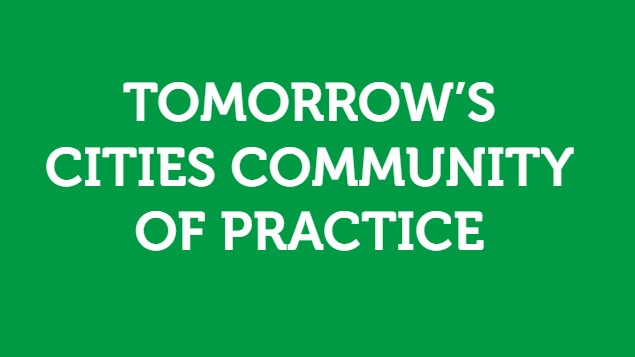
- Close
30/07/2020 | Nairobi
A transition from emergency response to risk preparedness in disaster management in Africa
Emerging disasters such as the COVID-19 pandemic and existing ones such as floods and fires posit major threats to Africa’s Agenda 2063 and to the development gains realized over decades of hard work. Despite these ensuing threats, the continent has often attended to disasters as emergencies rather than threats that require early preparedness and/or disaster proof development planning. However, in the phase of COVID-19, we see a developing sense of consciousness towards the threats posed by disasters and an urgency to put in place effective systems to prepare better for disasters.
The response to the COVID-19 pandemic in Kenya and of course many African countries has been largely reactive and based upon emergency directives from the National Emergency and Response Committee (NERC) and County Governments. There have been no clear and grounded policy frameworks to guide collective action through the pandemic. Despite being aware of the possible spread mechanisms of the virus into the African continent, the Kenyan government took longer than expected to put in place the necessary restrictive measures that could have curbed the entry of the virus into the country. This has revealed the country’s lack of preparedness not only to known/recurrent disasters, but also to emerging ones.
What are some of the consequences of emergency response to disasters such as the COVID-19?
The emergency response to COVID-19 has resulted to various consequences. First, it has created new economic vulnerabilities given that technical and financial resources had to be redirected to address the pandemic. At the macro level, governments have had to redirect budgets from other sectors to the COVID-19 emergency funds. This reallocation of funds is likely to expose other sectors that are already struggling from other challenges such as climate change and policy deficits. At the micro-level, the emergency lock-downs have resulted to loss of income, broken food supply chains, and disintegrated SMEs, among others. These losses have created new livelihood vulnerabilities for households especially the poor, thereby widening the existing economic inequalities.
Second, the COVID-19 has impacted the local communities at the ground level more severely,especially the poor who already face multiple and interconnected risks such as poverty, food insecurity, poor sanitation, social inequalities and gender discrimination, policy exclusion among others. This double exposure reinforces the existing economic and social inequalities among the poor.
What needs to be done moving forward?
Several strategic lessons can be drawn from the COVID-19 experience moving forward. First, there is need to strengthen Africa’s disaster management systems towards risk preparedness. Disaster management policies at national and sub-national levels need to be more people centred and adaptive to emerging threats such as the COVID-19. To support people centered preparedness, locally grounded and co-produced data/evidence is required for adaptive and pro-poor planning. This is because the fight against disasters such as the COVID-19 in Africa and especially the Sub-Saharan Africa has often been slowed down by lack of data and a clear understanding of the local dynamics and requirements for the desired culture shift or behavioral changes. While data exists relatively at higher levels, adopting this data to the local context rarely happens especially for the urban poor. This is because the urban poor often have little say in defining and co-producing data/research and policies. Establishing community-driven data/knowledge systems that are linked to higher level policy spaces is necessary to inform context specific and adaptive response to disasters. Kenya has made some efforts in this direction by developing open data portals, which can progressively be updated with the reliable data and information on different disaster risks.
Secondly, the continent should adopt action plans that address multiple disasters and their interconnectedness. The COVID-19 situation has demonstrated that disasters are not just the occurrences we see on a daily basis, but more detrimental pandemics could emerge and build on existing disasters such as floods and fires to create more havoc. For instance, the recent flooding in Kenya- which claimed nearly 300 lives and displaced over 200,000 people occurred concurrently with the COVID pandemic has also increased the vulnerability to contracting COVID-19 for the displaced families who are forced to seek refuge in over-crowded centres with little social distancing capacity. A multi-hazard approach to various issues and action plans that address multiple hazards and their interconnections could catalyse optimal response and help minimize impacts of unprecedented disasters.
What opportunities can the continent build on?
Even though COVID-19 presents a number of challenges, there are some positive prospects and lessons that can be adopted to improve disaster management in Africa. The pandemic has raised the political profile for disaster management towards embracing disaster proof development. The COVID-19 experience demonstrates that disasters can potentially erode any developmental gains achieved over years. The need to better manage existing disasters, which are often overlooked, has become important: it is now clear that the impacts of emerging disasters and pandemics can be exacerbated by existing ones. The attention that has been given to COVID-19 might imply that the management of existing disasters could benefit from this renewed political goodwill.
Additionally, the experience with the COVID-19 presents a great opportunity for Africa and other African countries to move from costly emergency response mechanism to more integrated disaster proof development planning and risk preparedness. This is not a one-off process but a long-term undertaking that intentionally builds systems that involve locally grounded evidence, capacity building and building relationships to enable joined-up actions. The country is already receiving some strategic support towards this direction. Opportunely, the Nairobi Risk Hub which is part of the broader Tomorrow’s Cities research project supported by the UK Government’s Global Challenges Research Fund (GCRF) is helping the Nairobi City to develop disaster management action plans focusing on risk preparedness.
Original article: https://www.arin-africa.org/2020/07/30/a-transition-from-emergency-response-to-risk-preparedness-is-disaster-management-in-africa-lessons-from-the-covid-19-emergency-response-authors-joanes-atela-victoria-chengo-keziah-mwanga/



